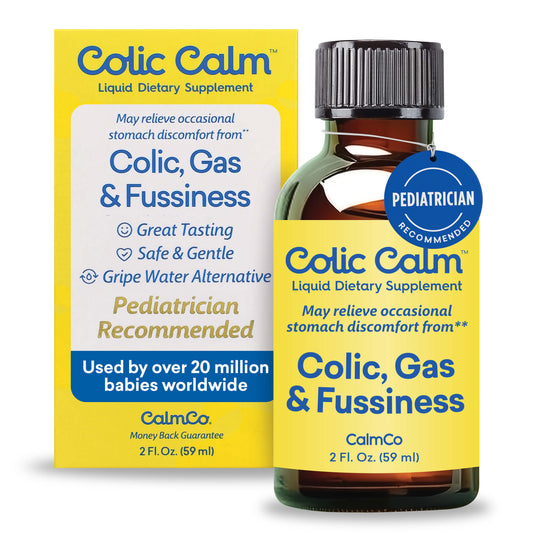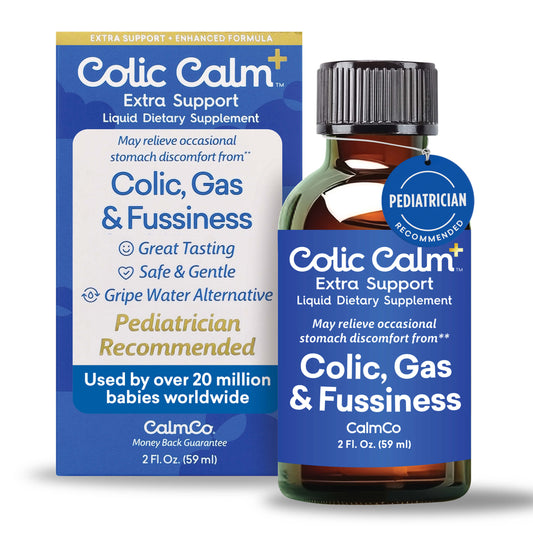Causes of Gas in Babies
Gas is a common part of infancy, but for some babies, it can lead to discomfort and fussiness. Understanding the causes of gas can help parents take steps to ease their little one’s discomfort.
Swallowing Air During Feeding
Babies naturally swallow small amounts of air while feeding, but excessive air intake can lead to trapped gas. This can happen when:
- The suction during nursing pulls in air bubbles. To help, burp your baby every 3 to 5 minutes during feedings or between breasts.
- A bottle nipple is the wrong size. If the nipple is too large, your baby may eat too quickly; if too small, they may gulp air while trying to suck harder.
Hyper-Lactation Syndrome
Some breastfeeding mothers produce an abundant milk supply, leading to an excess of foremilk—the watery, lactose-rich milk released at the beginning of a feeding. This can cause:
- Faster milk flow, leading to gulping and air intake.
- Increased gas and stomach cramping.
- More frequent feedings, as the baby may not be getting enough of the richer, fat-filled hindmilk.
- Higher-than-normal weight gain, gassiness, and fussiness.
Overstimulation and Stress
A baby’s digestive system can be affected by their environment. Loud noises, bright lights, too many visitors, or too much activity during the day can overwhelm sensitive babies. These babies may experience:
-
Shut-down responses to overstimulation.
-
Increased gas, fussiness, and difficulty sleeping, especially in the evening.
Reducing overstimulation by keeping the environment calm and limiting activity can help ease digestive discomfort.
Crying and Air Intake
Crying is a normal part of infancy and helps babies communicate their needs, but prolonged crying can lead to excess air intake. Swallowed air can become trapped in the stomach or intestines, causing gas pain and bloating. This can create a cycle—gas makes babies uncomfortable, leading to more crying, which introduces even more air into the digestive system.
Immature Digestive System
Newborns have underdeveloped digestive systems, and for the first 13 weeks, their bodies are still learning to process food efficiently. Key factors include:
-
Weak muscle coordination (peristalsis) in the digestive tract, making it harder to move gas through.
-
Lack of beneficial gut bacteria (probiotics), which develop over time to aid digestion.
Gas can get trapped in different parts of the intestines, acting like a cork that blocks digestion, leading to bloating, discomfort, and hiccups.
Introduction of Solid Foods
As babies start eating solid foods, their digestive system must adjust by producing new enzymes and probiotics. Some gas-producing foods, like cruciferous vegetables, beans, and certain fruits, can cause bloating in babies just as they do in adults.
How Gas Affects Babies
For most newborns, gas isn’t painful and passes easily. However, when gas gets trapped, it can cause bloating, stomach distension, and discomfort. In some cases, hiccups may be a sign of built-up gas in the stomach.
By understanding these common causes, parents can take simple steps to minimize gas discomfort and help their baby feel more at ease.




